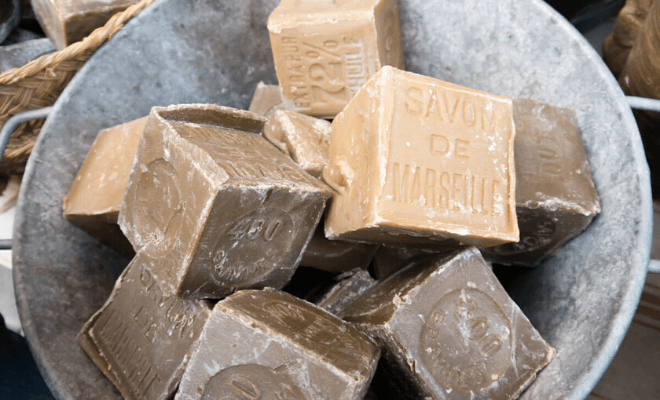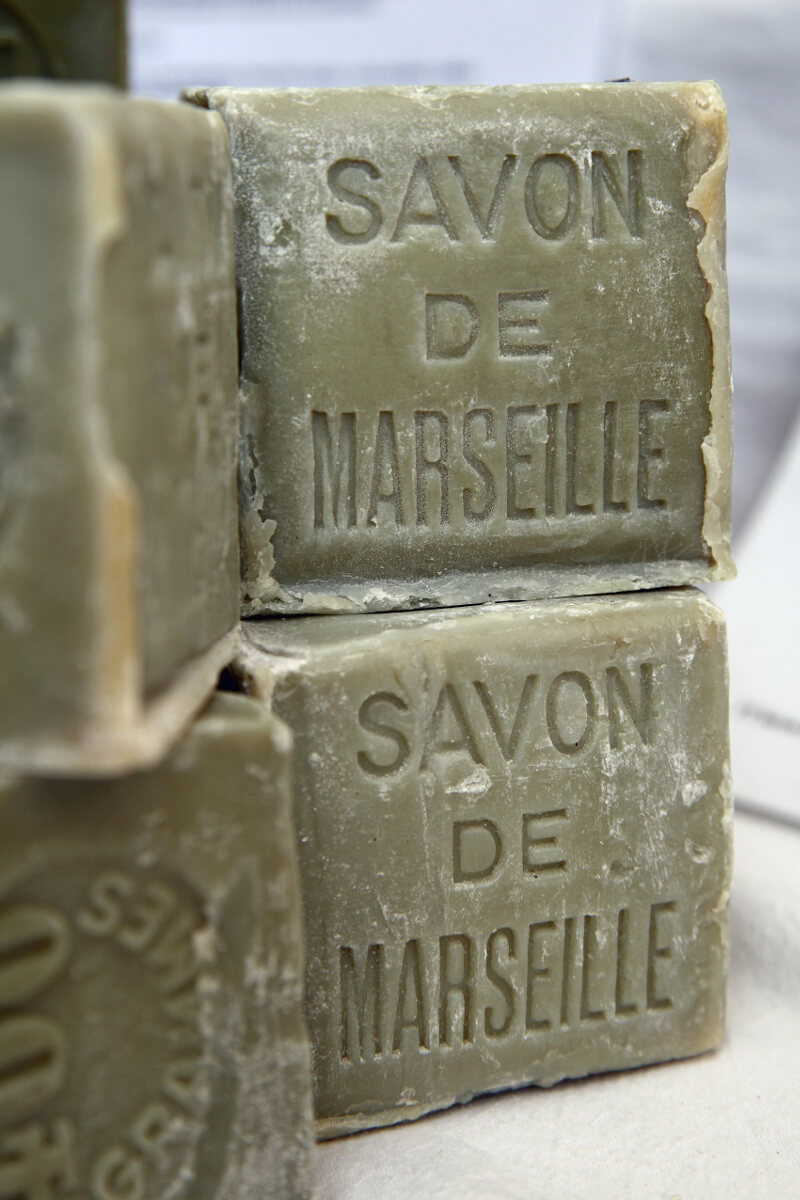Savon de Marseille – The History of Marseille Soap

Savon de Marseille – The History of Marseille Soap
Savon de Marseille, (Marseille Soap), is believed to be the most excellent soap in the world. Renowned for its powerful cleaning abilities, it is equally suitability to people with sensitive skin, including babies, through to its hypoallergenic qualities.
Marseille soap also used for laundry and general household cleaning is composed of 72 per cent of fatty acid, resulting from the mixing of oils and soda-ash or sea salt and 28 per cent water.
So, how did the manufacture of this beautiful Savon de Marseille begin?
What is the history of Marseille Soap?
The origin of Savon de Marseille comes without doubt from Aleppo soap, which has existed for thousands of years. The method of manufacture originated in the city of Aleppo in Syria and involving a basis of olive oil and laurel oil. This method spread throughout the Mediterranean basin in the wake of the crusades, passing through Italy and Spain, before reaching Marseille.
First Savonneries
A man named Crescas Davin was the first Marseille soap maker in the 14th Century, and in 1593 a man named Georges Prunemoyr opened the first soap factory in Marseille when demand began to exceed local needs.
By 1660 seven factories in the city used locally produced olive oil as raw material, along with the ash from the burning of the salt marsh plant Salicornia (Glasswort). Production totalled almost 20 000 tonnes of soap a year.
In 1688 Louis XIV introduced The Edict of Colbert; a set of regulations limiting the use of the name "Savon de Marseille", to soaps that were:
- made in and around the Marseille region
- heated in cauldrons
- made using only pure virgin olive oil.
- including no animal fats
Local soap makers who flaunted these rules risked banishment from Provence.
Marseille Soap Goes Viral
The quality of production was such that "Savon de Marseille" became a household name and at that time this green coloured soap was generally sold in 5kg bars or loaves of 20kg.
By 1786, 48 Marseille factories produced 76 000 tonnes, employing 600 workers and 1500 loaned convicts.
Following the French Revolution in 1789, the manufacture of Savon de Marseille continued to expand and escalated to 62 factories by 1813.
Savon de Marseille recipes
Around this time, Nicolas Leblanc (1742-1806), invented a process of extracting Soda-ash, one of the principal ingredients, from seawater.
Toward the 1820s, new oils and fats were imported and passed through the port of Marseille, meaning the more widespread use of oils like palm, copra, peanut and sesame. More factories began to appear throughout the region in places like Salon-de-Provence, Toulon and Arles.
Eventually, instead of the use of the various vegetable oils, the factories turned to the much cheaper tallow (animal fat) due to heavy competition from factories in Paris and indeed England.
In the 19th Century, the city of Marseille with almost 90 factories, had a thriving industry that reached its pinnacle in 1913 with nearly 180 000 tonnes of Marseille soap produced. During this time, in 1906, François Merklen was responsible for establishing the formula for Savon de Marseille:
- 63% copra oil or palm oil.
- 9% soda-ash/sea salt.
- 28% of water.
The War On Marseille Soap
After the First World War, the savonneries (soap factories) enjoyed the progress of mechanisation, and without losing the quality of the product due to the utilisation of former processes, production rose again to 120 000 tonnes in 1938.
When the Second World War broke out, Marseille still represented half of the soap production in France but the following years were to see its decline. Synthetic detergents superseded the soap, and the factories began closing one after the other.
Nowadays, only a handful of manufacturers remain in the region, but they still manufacture world-beating natural Savon de Marseille (Marseille Soap).
Et Vous?
Are you familiar with Savon de Marseille? When did you first start using it? We'd love to hear your thoughts on Savon de Marseille in the comments below. Don't forget to like and share this article with everyone! It really helps :)


I have recently discovered the beauty and versatility of Marseille Soap. It amazingly washes grease with cold water and requires very little water to rinse. Keeps hands soft while washing up and cleans so many different things so well.
It's the best!